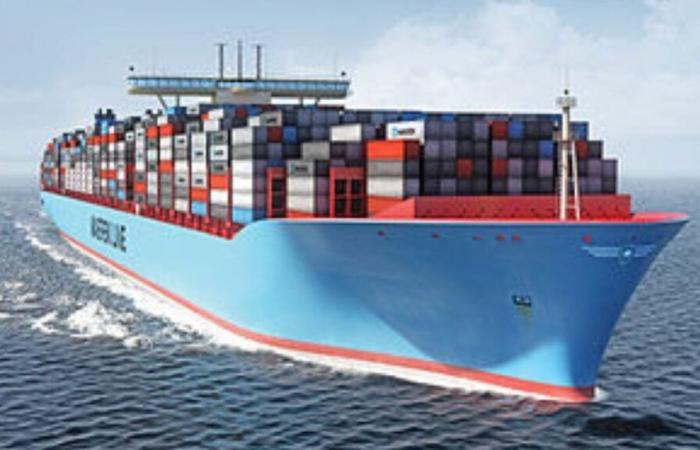Morocco’s decision to welcome two ships from the Maersk company to Tangier-Med, turned away from Spanish ports on suspicion of transporting weapons to Israel, illustrates the strengthening of ties between Rabat and Tel Aviv. This choice, which contrasts with Madrid’s firm position, highlights the new diplomatic orientation of the Shereef kingdom, at the risk of growing internal tensions.
This Saturday, Madrid refused access to its port facilities at the port of Algeciras to two Maersk cargo ships, suspected of transporting military equipment intended for Israel. The Spanish Ministry of Foreign Affairs confirmed that the ships “will not stop in Spain”, without providing additional details, Iberian media reported. This decision is a continuation of a policy already illustrated in May 2024, when Spain banned the stopover of the Marianne Danica, a ship transporting Indian weapons to Israel. This firm position, hailed by pro-Palestinian organizations as a strong gesture in favor of peace, contrasts with the flexibility of the Moroccan authorities who chose to welcome these same ships in Tangier-Med. This controversial choice revives the debate on Morocco’s foreign policy, which now appears to support the Jewish state despite the support of its population for the Palestinian cause.
Choices that rekindle tensions
The controversy surrounding these stopovers is all the more intense since the port of Tangier had already been at the center of a controversy last June, when it hosted the Israeli warship INS Komemiyut. The latter was able to refuel before continuing his route towards Israel, provoking the indignation of the Moroccan Front in Support of Palestine and Against Normalization but also protest demonstrations by the Moroccan population. The recent acceptance of Maersk ships reinforces the impression of Morocco’s growing alignment with Israeli interests.
Moroccan-Israeli defense relations have experienced a notable acceleration since the normalization of relations between the two countries in December 2020 and then with a military cooperation agreement in November 2021. The peak of this rapprochement: a contract of more than $500 million signed in 2022 with Israel Aerospace Industries (IAI) for the acquisition of the Barak MX anti-missile system. This military collaboration calls into question the neutrality that the kingdom tries to maintain.
A foreign policy under tension
The Moroccan monarch, who chairs the Al-Quds Committee responsible for protecting Palestinian interests, finds himself in a paradoxical position. While its historical role commits it to the Palestinian cause, its pragmatic policy favors the strategic interests of the kingdom, particularly in relation to the Western Sahara issue, and therefore unfailing support for the United States and Israel. This ambivalent positioning weakens its legitimacy on the national scene, where demonstrations are increasing, particularly in Tangier.
Read: Should Mohammed VI resign from the presidency of Al-Quds?
The priority given by Morocco to the question of Western Sahara largely explains this diplomatic turnaround. The alliance with Israel, seen as a major asset in this issue, takes precedence over traditional considerations of solidarity with Palestine. This strategic reorientation, if it responds to geopolitical imperatives, creates a growing gap between the official policy of the kingdom and the aspirations of a significant part of its population. The controversy recently raised by the comments of Hakim Ziyech who openly criticized his country’s position is in this sense revealing of the tensions in the country.
Between pragmatism and principles: a divided strait
The contrast between Spanish firmness and Moroccan flexibility regarding ships linked to Israel raises a divide in the management of the Israeli-Palestinian conflict. While Madrid asserts a position of principle by systematically refusing access to ships potentially involved in the conflict, Morocco favors its immediate profitability and short-term diplomacy.
The port of Tangier-Med thus becomes the symbol of a Morocco in the midst of diplomatic change, where political pragmatism seems to take precedence over traditional positions. At the risk that countries historically supporting Palestine come to boycott the port.






